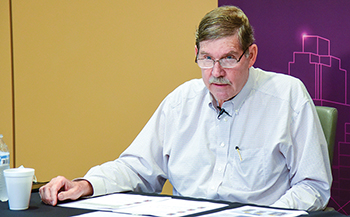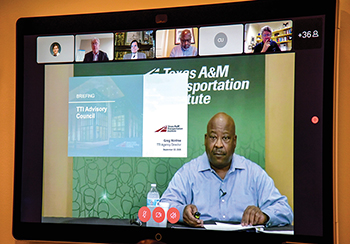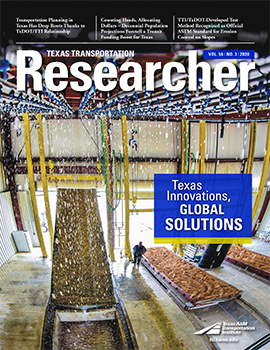The Texas A&M Transportation Institute (TTI) Advisory Council held its first-ever virtual annual meeting Sept. 22. The meeting is normally a two-day, in-person affair and was originally scheduled for the spring time frame, but due to continued COVID-related restrictions, TTI leadership decided to host the meeting virtually.

The meeting commenced with a welcome and introductions by David Cain, former Texas state senator and chair of the council. Approximately 30 council members participated in the meeting.
TTI Agency Director Greg Winfree provided an update on the agency and its recent research initiatives, including discussion of about 20 research projects underway at the Institute applicable to COVID-19 transportation impacts.
“Some of these projects involve examining transportation as a disease vector; studying public safety and operational impacts on transit agencies; tracking key economic indicators as a result of the pandemic; and analyzing the impacts of the virus on statewide multi-modal freight movement,” Winfree said. “TTI researchers believe that our nation’s transportation system will be significantly impacted by COVID-19 for the longterm — which makes TTI’s expertise even more important going forward.”
Winfree also reported that research expenditures were up slightly, topping $66.7 million for fiscal year 2020, which ended Aug. 31. He closed by discussing TTI’s contributions to supporting the Texas Legislature by providing invited testimony and responding to multiple inquiries from policymakers.

Texas A&M University System Chancellor John Sharp joined the meeting to welcome the council, thank members for their service, and introduce the guest speaker, Texas State Representative Terry Canales, chairman of the House Transportation Committee.
Chairman Canales discussed the Texas legislative landscape and possible transportation initiatives, including transportation funding broadly and as related to infrastructure surrounding the state’s land and sea ports, which are so crucial to the Texas economy. He mentioned the need to address a volatile revenue stream for maintaining the state’s roadways in this era of booming population growth.
After answering questions from council members, Chairman Canales thanked TTI for being a resource to his committee and said he would be leaning on the agency leading up to the 2021 legislative session, which begins in January.
“When we need transportation data, you all are able to provide it quickly, and it is always based on facts and science,” Canales said. “TTI is a ‘well’ of information, and your experts provide the information in a format that legislators can easily digest and understand. Keep educating us,” he said.
The meeting concluded with TTI Deputy Director Bill Stockton and Senior Research Engineer Ginger Goodin leading a discussion about potential future research opportunities, transportation issues facing the state, and how TTI can contribute to improving our transportation system.
